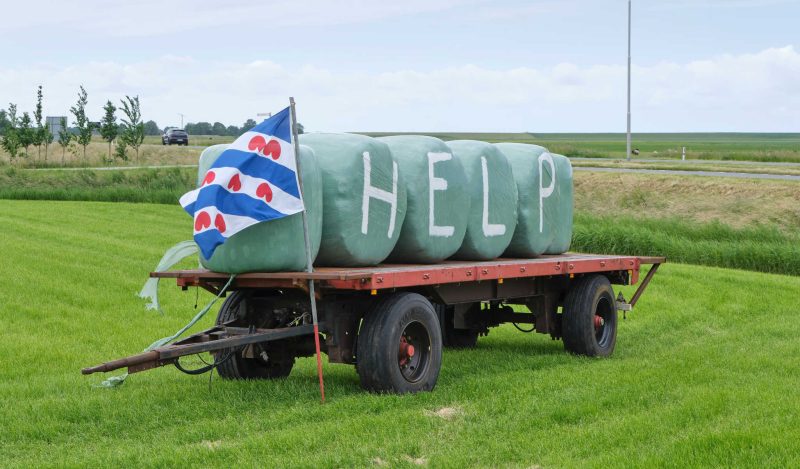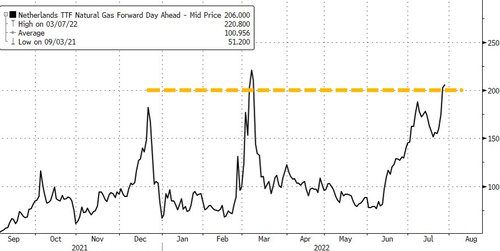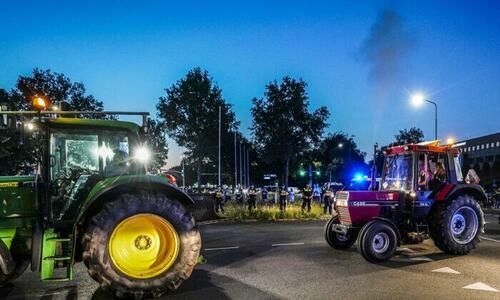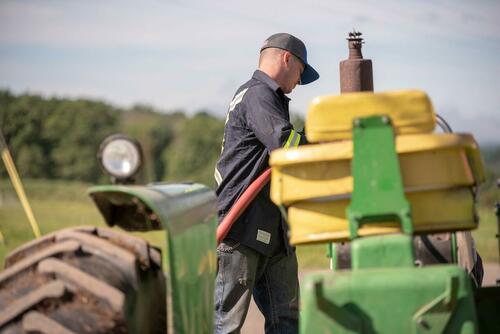 We really are reaching a major crisis point. Thanks to soaring fertilizer prices, insane weather patterns and the war in Ukraine, global food supplies have been getting tighter and tighter. So we really needed a banner year for agricultural production in both the United States and Europe in 2022, and that is not going to happen. In fact, unprecedented drought is absolutely devastating crops all over the northern hemisphere. A lot of people are complaining about how high food prices are right now, but just wait. If some sort of a miracle doesn’t happen, agricultural production is going to be way below expectations in both the United States and Europe, and that is going to have very serious implications for 2023.
We really are reaching a major crisis point. Thanks to soaring fertilizer prices, insane weather patterns and the war in Ukraine, global food supplies have been getting tighter and tighter. So we really needed a banner year for agricultural production in both the United States and Europe in 2022, and that is not going to happen. In fact, unprecedented drought is absolutely devastating crops all over the northern hemisphere. A lot of people are complaining about how high food prices are right now, but just wait. If some sort of a miracle doesn’t happen, agricultural production is going to be way below expectations in both the United States and Europe, and that is going to have very serious implications for 2023.
Let me start by talking about the nightmare that is starting to unfold in Europe.
According to CNN, it is now being projected that farmers in Italy have lost “up to 80% of their harvest” because the drought has become so severe…
In Italy, farmers in some parts of the country have lost up to 80% of their harvest this year due to severe weather anomalies, the Coldretti farming association said Thursday.
How are those farmers going to survive?
Many farmers in France are facing similar losses because they have only been receiving a fraction of the rainfall that they normally get…
In France, where an intense drought has hammered farmers and prompted widespread limits on freshwater use, there was just 9.7 millimetres (0.38 inches) of rain last month, Meteo France said.
That was 84 percent down on the average levels seen for July between 1991 and 2022, making it the driest month since March 1961, the agency added.
Crop failures in France would be a really, really big deal, because France is normally “the fourth-largest exporter of wheat” in the entire world…
…click on the above link to read the rest of the article…
















 Hi Everyone,
Hi Everyone, It was totally invisible from the top.
It was totally invisible from the top.


 I trained as a beekeeper about 10 years ago, and when I started I had already completed training as an organic grower. As I studied beekeeping, I was alarmed at the similarities between the methods I was being taught and the mindset of industrial farming. I was unsettled by some of the practices that seemed to be very common. Routine use of miticide within the hive, routine disturbance of the nest space, routine suppression of reproduction and routine sugar feeding, all seemed at odds with what I had learnt as an organic grower. A defining moment was a visit to a teaching apiary to inspect the bees. We opened the hives and carefully checked through the brood nest, the area where the young bees are developing, if we found any developing queens we would kill them. Our presence obviously disturbed the bees who defended their nest space, in hive after hive that we opened, by attacking us. The bees were clearly communicating the threat they felt and I was struck by the violence of this process which was charged with conflict – even putting on the beekeeper’s suit had the feel of preparing for battle. There was a clear cognitive dissonance between this experience and my imagined harmony between beekeeper and bees…
I trained as a beekeeper about 10 years ago, and when I started I had already completed training as an organic grower. As I studied beekeeping, I was alarmed at the similarities between the methods I was being taught and the mindset of industrial farming. I was unsettled by some of the practices that seemed to be very common. Routine use of miticide within the hive, routine disturbance of the nest space, routine suppression of reproduction and routine sugar feeding, all seemed at odds with what I had learnt as an organic grower. A defining moment was a visit to a teaching apiary to inspect the bees. We opened the hives and carefully checked through the brood nest, the area where the young bees are developing, if we found any developing queens we would kill them. Our presence obviously disturbed the bees who defended their nest space, in hive after hive that we opened, by attacking us. The bees were clearly communicating the threat they felt and I was struck by the violence of this process which was charged with conflict – even putting on the beekeeper’s suit had the feel of preparing for battle. There was a clear cognitive dissonance between this experience and my imagined harmony between beekeeper and bees…

